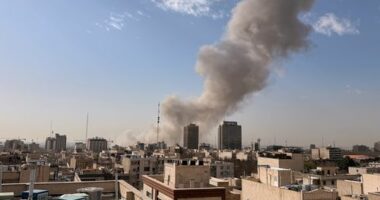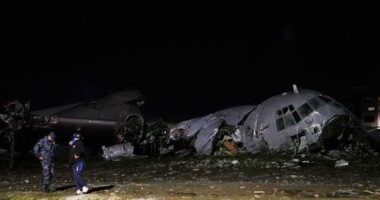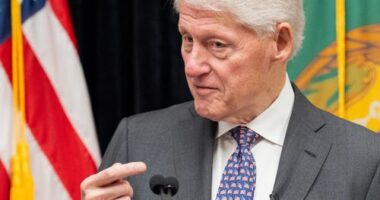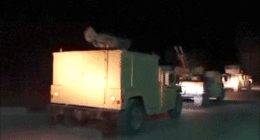Share this @internewscast.com
Israel has long claimed Iran is developing a nuclear weapon, with Netanyahu calling it an “existential threat to Israel”.
In recent days, Foreign Minister Penny Wong, Defence Minister Richard Marles and Opposition leader Sussan Ley have all described Iran’s nuclear program as a significant “threat” to international peace and security.
Ruff described Israel’s “extremely dangerous” attack on Friday as “the most flagrant example of double standards that you could possibly imagine”.

Fire and smoke rise into the sky after an Israeli attack on an oil depot in Tehran on Friday. The attacks targeted multiple military, scientific and residential locations. Credit: Getty images
When it comes to countries developing nuclear capacities, Ruff said the “inherent ambiguity” of nuclear programs made it a far bigger issue than just Iran.
“There are many other countries who have been flirting with having nuclear facilities and the capacity to produce fissile material quickly to shorten the path to a weapon, should they choose to do so.”
Which countries have nuclear weapons?
Russia and the US control the vast majority of these weapons, together possessing around 90 per cent of the 12,241 estimated warheads that exist globally, according to the Stockholm International Peace Research Institute (SIPRI).
SIPRI, in its annual assessment of armaments, disarmament and international security on Monday, warned the world’s nuclear arsenals were being enlarged.
“Instead, we see a clear trend of growing nuclear arsenals, sharpened nuclear rhetoric and the abandonment of arms control agreements.”
What steps have been taken to limit nuclear weapons?
Ruff said a shortcoming of the treaty was that, while it contained a detailed regime regarding non-proliferation by states that didn’t already have nuclear weapons, there were no clear details or timeframe for other countries to implement disarmament.
According to the UN, 73 states have ratified or acceded to the treaty.
What about the Iran nuclear deal?
In 2018, during his first term, US President Donald Trump walked away from the deal and reinstated sanctions.

Donald Trump pulled the US out of the Iran nuclear deal in 2018, three years after it was established. Source: Getty / Anna Moneymaker
Iran said it would stop complying with parts of the agreement, and has substantially ramped up its enrichment program in the years since.
The sixth round of talks had been set to take place on Sunday, but Iran withdrew, saying such discussions were “meaningless” amid Israel’s ongoing strikes.
‘Law of the jungle’
Ruff described the current situation, in which several countries continue to own nuclear weapons, as a “completely unsustainable, unjust and very dangerous law of the jungle”, and that complete disarmament was necessary for peace to occur.












